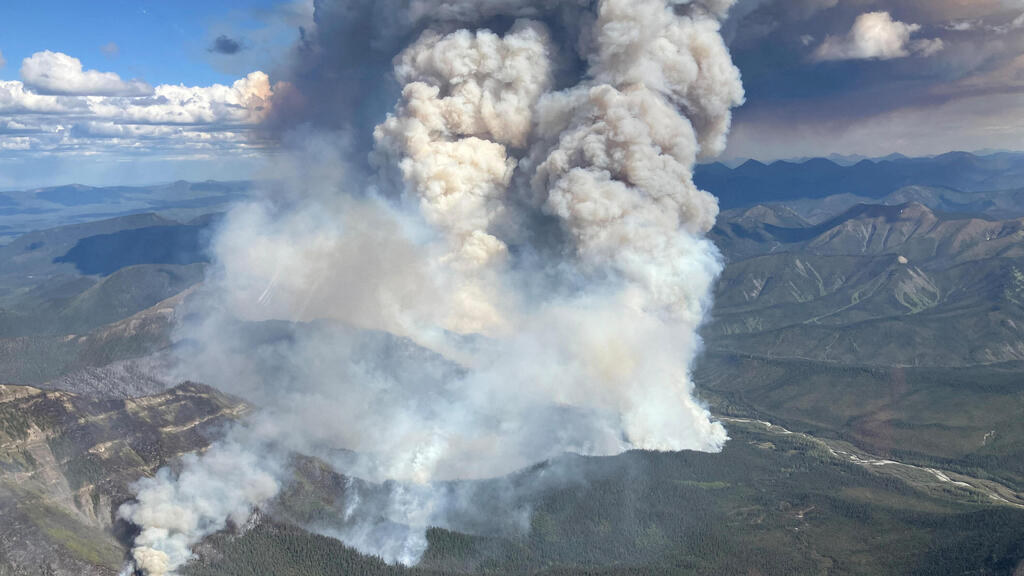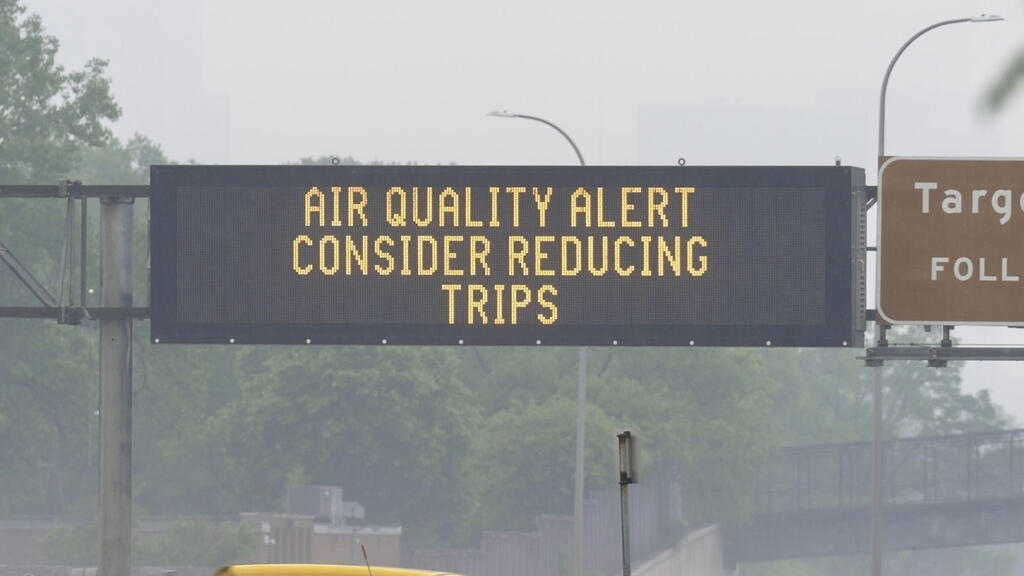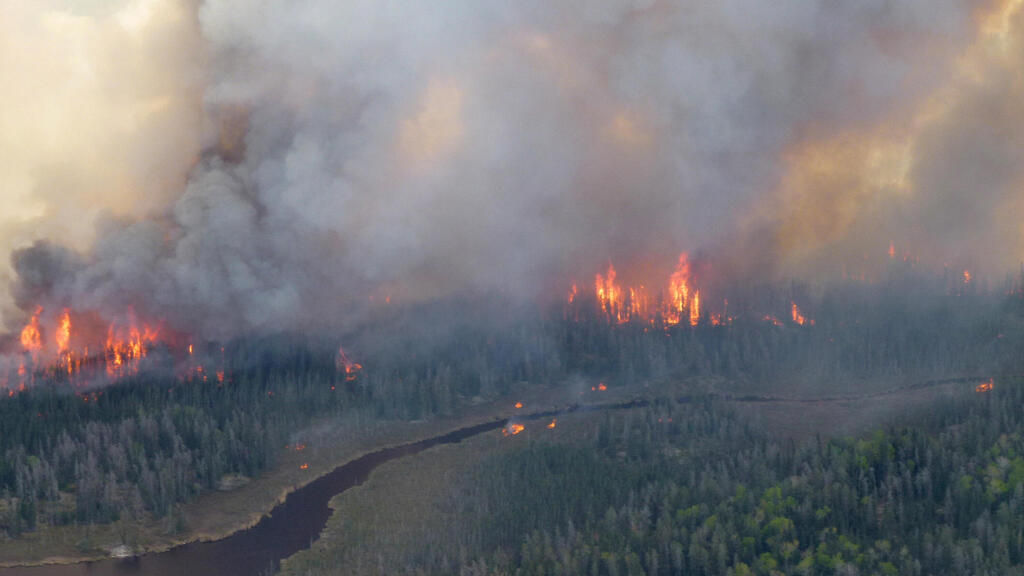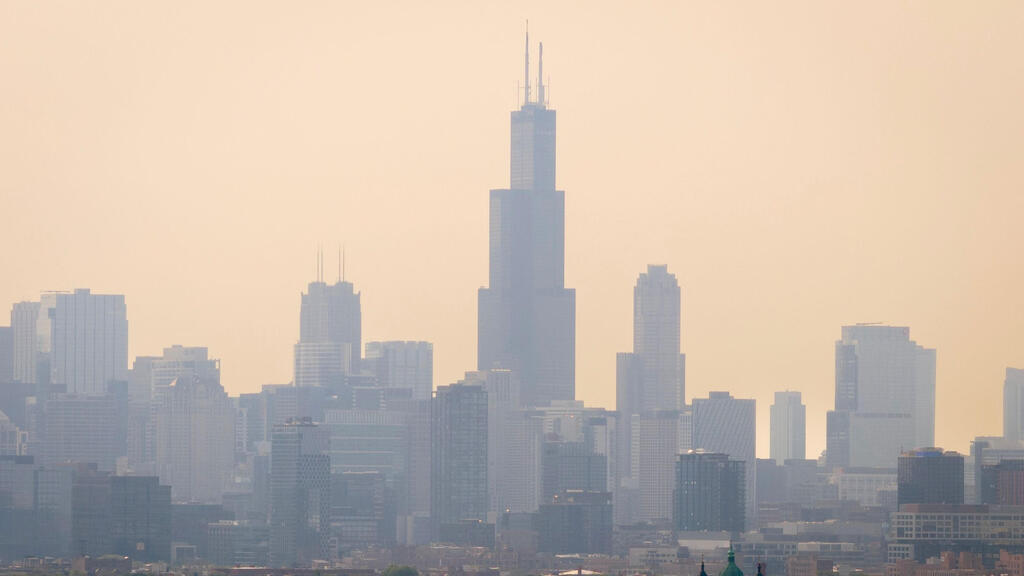Smoke from dozens of wildfires raging across three Canadian provinces blanketed nearly one-third of the United States on Wednesday, reducing visibility in major cities like Minneapolis and Chicago, and significantly degrading air quality in parts of the Northeast and Midwest. In areas such as New England, New York and the Ohio Valley, authorities advised elderly residents and parents of young children to take extra precautions.
The thick haze, which brought hazardous pollution levels to Minnesota on Tuesday, spread across a vast swath of the country—from North and South Dakota, through the Ohio Valley, and as far south as Georgia. The highest concentrations were reported in New York and across New England.
5 View gallery
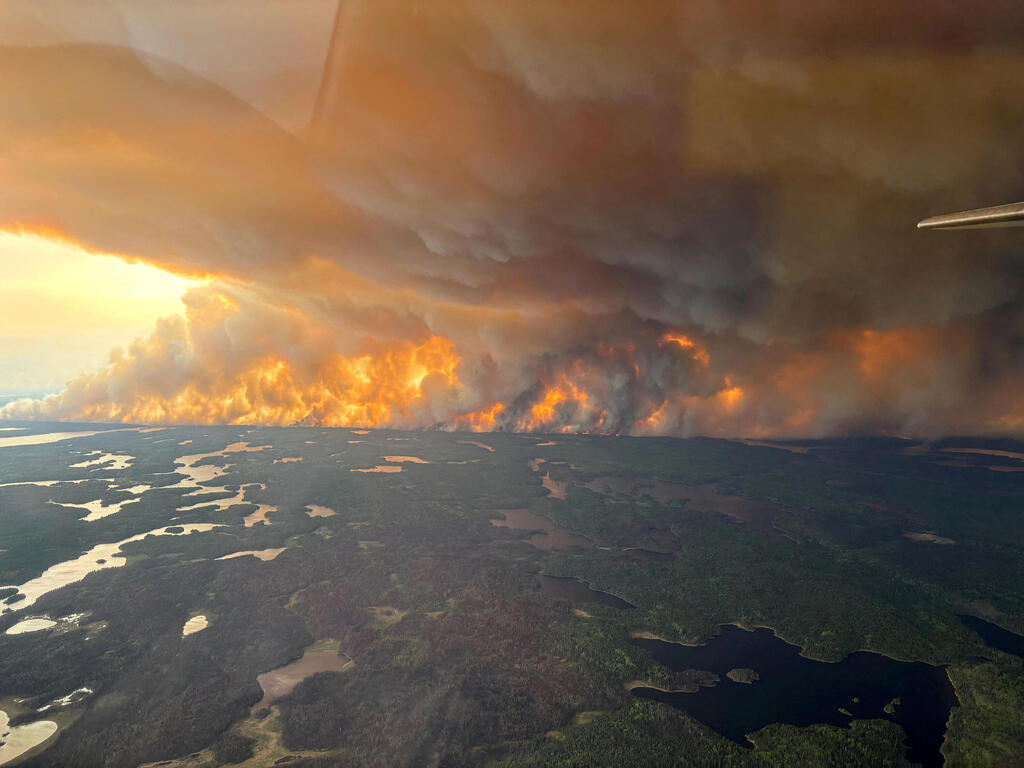

Smoke from wildfires in Canada covers a third of the US
(Photo: Manitoba Government/Handout via Reuters)
“Most of the smoke is lingering in the upper atmosphere, so many areas are not experiencing major air quality issues,” explained Mark Chenard of the National Weather Service. “But in places like New York and Connecticut, where the smoke is denser and lower to the ground, air quality has been more severely affected.”
Since early May, Canada has battled an extraordinary number of wildfires. As of Tuesday night (Israel time), 212 fires were active across the country—about half of them classified as out of control. The blazes have scorched more than 4.9 million dunams (roughly 1.2 million acres), primarily in the provinces of Manitoba, Saskatchewan and Alberta in central and western Canada.
Young Liu, a professor of environmental health at Emory University in Atlanta, warned that while infants, the elderly and other vulnerable populations are most at risk, everyone exposed to the smoke is affected. “This will impact everyone to some degree,” he said. “It’s bad.”
Get the Ynetnews app on your smartphone: Google Play: https://bit.ly/4eJ37pE | Apple App Store: https://bit.ly/3ZL7iNv
Liu emphasized that the smoke contains fine particulate matter—some of it toxic—smaller than one-fortieth the width of a human hair, capable of penetrating deep into the lungs and even entering the bloodstream.
One of the hardest-hit areas Wednesday morning was Williamstown, Massachusetts, near the borders with Vermont and New York, where the air quality index (AQI) reached 228—classified as “very unhealthy.” Air quality is considered good when the AQI is below 50; readings between 100 and 300 are labeled “unhealthy” to “very unhealthy,” and anything above 300 is deemed “hazardous.”
Elsewhere in the region, air quality was less severe. In New York City, the AQI was 56, while in Washington, D.C., it stood at 55.


